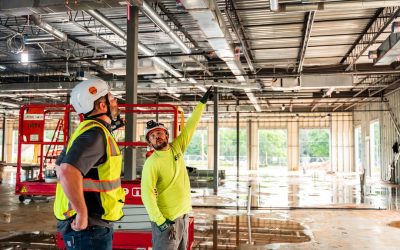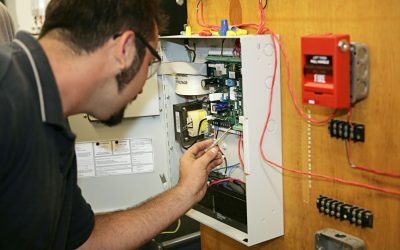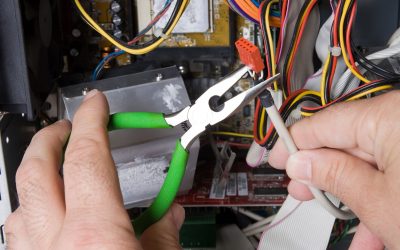Renovating your home can be an exciting experience, but it also requires careful planning and attention to detail, especially when it comes to electrical work. Whether you’re updating your kitchen, remodeling a bathroom, or adding new rooms to your home, one of the most important professionals you’ll need is a residential electrical contractor. A licensed residential electrician ensures that all electrical installations meet safety standards, code requirements, and modern energy needs.
Let’s explore the essential role a residential electrical contractor plays during a home renovation, helping you understand why their expertise is vital to a successful project.
1. Initial Electrical Assessment and Planning
Before any physical work begins on a home renovation, a residential electrical contractor will conduct an initial assessment of your home’s electrical system. This inspection involves reviewing the current state of your wiring, outlets, panels, and circuits to identify any deficiencies or issues that may need to be addressed before starting the renovation.
The licensed residential electrician will then help plan out how the new electrical system will function within the scope of your renovation. For example, if you’re adding a new room or upgrading an old kitchen, they’ll need to plan for the increased power demand, additional outlets, and modern lighting fixtures. The planning phase is critical for preventing unexpected issues later in the process, and it ensures that your home’s electrical setup aligns with your renovation goals.
2. Compliance with Local Building Codes
Electrical work is heavily regulated, and it’s crucial to ensure that any updates or modifications meet local building codes. A licensed residential electrician will know the specific codes for your area and ensure that all work is compliant.
For instance, some jurisdictions require GFCI (Ground Fault Circuit Interrupter) outlets in kitchens and bathrooms to prevent electrical shocks in wet areas. In other cases, your home may require specific wiring types or breaker panels to handle new load demands. A residential electrical contractor ensures that your renovation passes all inspections by adhering to these building codes, ultimately making your home safer and more efficient.
3. Upgrading Outdated Systems
Many homes, especially older ones, were built with outdated electrical systems that can’t support today’s energy needs. When renovating, it’s an excellent opportunity to upgrade your electrical infrastructure. A licensed residential electrician can assess the current capacity of your electrical panel and circuits and recommend upgrades if needed.
This could include installing a new breaker panel, adding new circuits, or updating wiring to meet modern power demands. For example, older homes may not be equipped to handle newer appliances or smart home devices, which require more power. Upgrading your system during a renovation ensures that your home is future-proof and that you won’t face issues like overloaded circuits or tripped breakers in the future.
4. Installation of Modern Lighting and Smart Technology
One of the most exciting aspects of home renovations is the chance to incorporate modern lighting and smart home technology. Whether you’re installing recessed lighting in the living room or integrating smart thermostats, security cameras, and automated lighting systems, a residential electrical contractor is responsible for ensuring all wiring and connections are done correctly.
Smart home devices, for example, often require specialized wiring, including the integration of low-voltage systems or power-over-Ethernet connections. A licensed residential electrician can ensure that these devices are installed seamlessly and are functioning at their highest capacity. Furthermore, they’ll ensure all wiring is safely integrated into your home’s electrical system, reducing the risk of malfunctions or safety hazards.
5. Managing Electrical Load Distribution
During home renovations, you might add appliances or power-hungry devices such as an oven, air conditioner, or electric vehicle charging station. These upgrades can place additional strain on your existing electrical system. A licensed residential electrician will assess your system’s load capacity and determine if upgrades are needed to handle the new devices.
For example, if you add a new kitchen appliance, a new bathroom exhaust fan, or home entertainment system, the residential electrical contractor will balance the electrical load to prevent overloading the circuits. They may recommend installing dedicated circuits or upgrading your breaker panel to ensure that your home can safely handle the added electrical demands.
6. Ensuring Safety Through Proper Installation
Electrical safety is one of the most important aspects of any home renovation, and improper installations can have dangerous consequences. A licensed residential electrician ensures that all wiring is correctly installed, that outlets are properly grounded, and that electrical panels are functioning as they should.
In some cases, improper electrical installation can result in electrical fires, electrocution risks, or even the failure of expensive home devices and appliances. This is why working with a qualified residential electrical contractor is crucial—they possess the experience, skills, and training to prevent electrical hazards during a renovation.
7. Final Inspection and Certification
Once the electrical work is completed, the residential electrical contractor will conduct a final inspection to ensure that everything meets safety standards and code requirements. A licensed residential electrician will test all new circuits, outlets, and systems to ensure they function as intended.
In many cases, local authorities require an official inspection and certification of the electrical work to ensure compliance. The electrician will often handle this process, securing permits and arranging for third-party inspections when necessary. This certification adds an additional layer of protection, giving you peace of mind knowing your home’s electrical system is safe and functional.
8. Ongoing Support and Maintenance
Even after your home renovation is complete, a residential electrical contractor can provide ongoing support. A licensed residential electrician will offer advice on how to maintain your system, keep it in top condition, and address any future needs or updates. Additionally, if issues arise post-renovation, they are the best resource to ensure any new electrical problems are quickly and safely resolved.
For example, if you plan to expand your living space further or add additional electrical devices, the contractor will be able to assist with any adjustments or improvements.
Final Thoughts
A residential electrical contractor plays a vital role in ensuring the success of a home renovation. From initial planning and compliance with building codes to handling modern systems and future-proofing your home, a licensed residential electrician ensures your electrical work is safe, efficient, and up to standard.
If you’re undergoing a home renovation, consider consulting with an experienced technician to ensure your electrical systems are properly installed and functioning.



